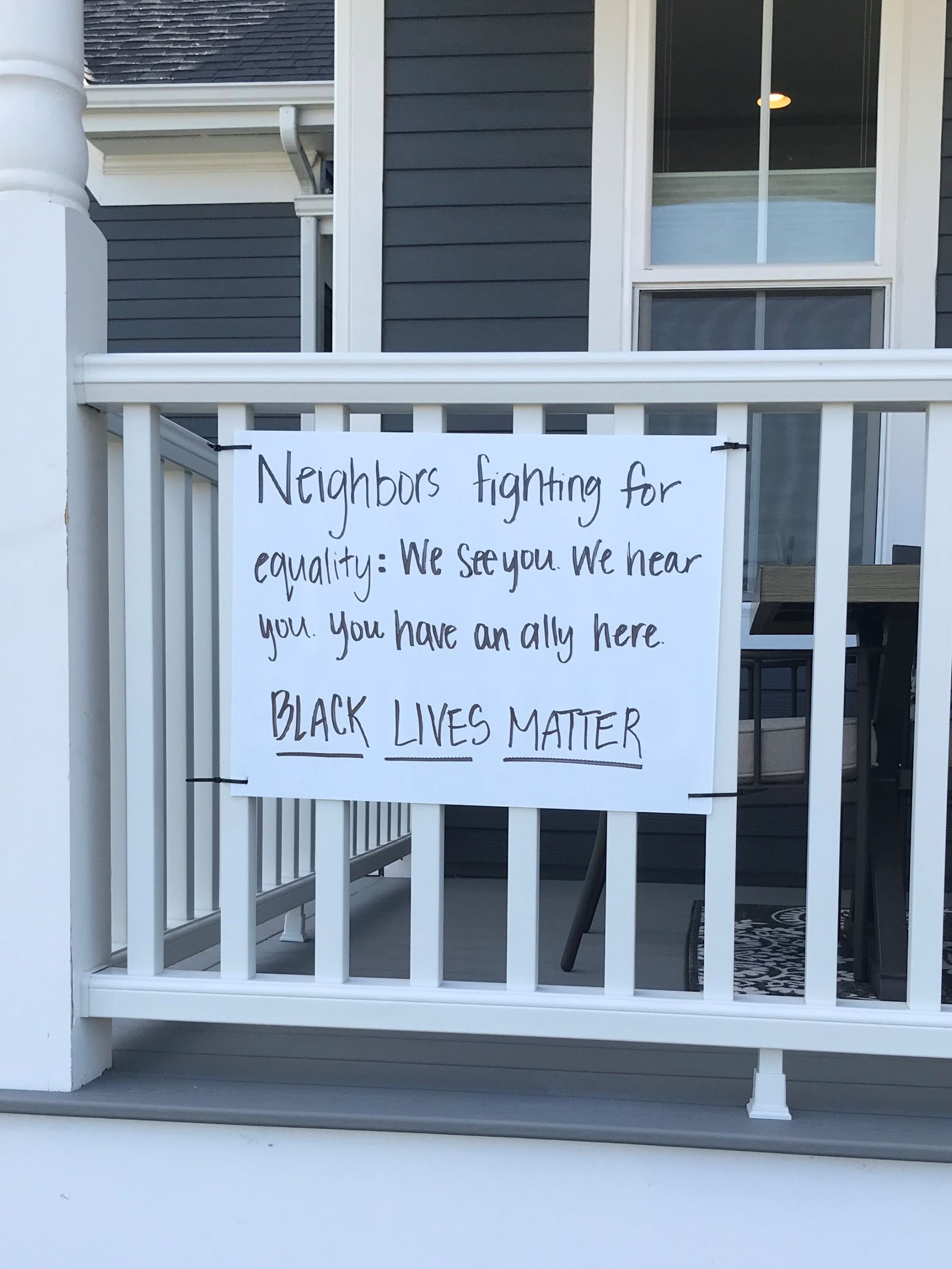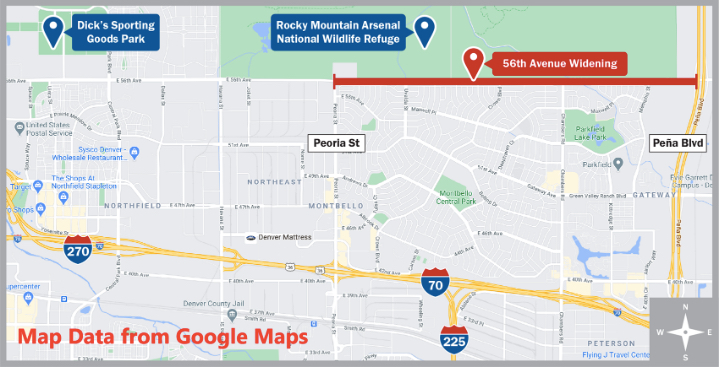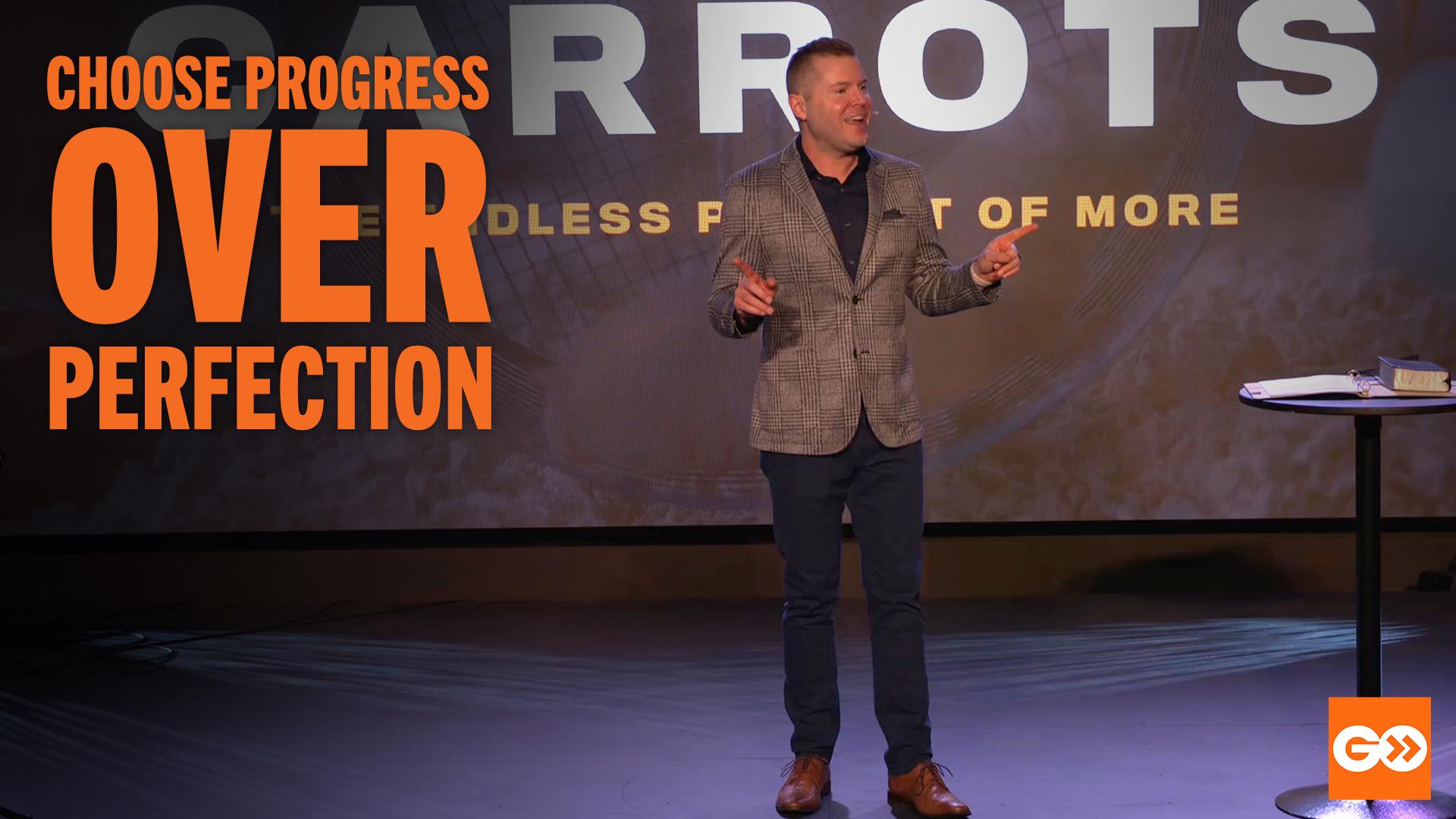A good friend of mine sent me the image you see above. He also challenged me a week or so ago after we removed “Stapleton” from the name of the blog. He said “Hey man, that’s great you made that change…” then he immediately followed that up with “…so what’s next? What is that next step to really support Black Lives Matter?”
Damn. Don’t you hate when someone challenges you on something and your gut says “they’re right…but that sounds really scary.”
That was one of those moments.
Well, he was right. I need to do more and in this blog I’ll share what I’m learning in the early phases of my journey to learn more about racism. As I shared this with our team I could see some of them were on the same journey.
I, like everyone I’ve talked to, was of course enraged and shaken by the video showing the murder of George Floyd. To be honest, I didn’t watch it for about a week, not wanting to see what I had heard horrifically described on the news. But I did end up watching it, realizing I can’t avoid it and act like those types of things don’t happen in this world.
Watching it left me disgusted and asking “what can I do?” This post is about my first few steps as I try to answer that question internally.
Before I dive into this post I want to clarify a few things.
The Scoop has typically steered clear of political or controversial topics. We can’t do that in this case. How can we be a community blog, say we’re all about community but not acknowledge this racial inequality issue that is on everyone’s minds? We can’t ignore this by being silent and we’re realizing how hurtful that silence is to the Black members of our community. We can be positive, be unifying and try to move the conversation forward in a positive fashion…but we can’t just be silent because it’s awkward and frankly scary to talk about publicly.
I recognize that I’m speaking as a White male of privilege and I’ve done nothing of significance to help in this fight for equality. I’ve had every opportunity in life and I can’t understand the struggle that people of color have gone through and go through today. So in no way is this a “look at me” thing…I’ve done nothing. I’m sure my life is full of hypocrisy that you could easily find and point out to me. I’m a beginner in this topic, and that’s ok, because maybe my naïve beginner voice will resonate with others & encourage them to learn more. If you’ve been in this journey for a long time then bear with my beginner voice and forgive me if I accidentally say something insensitive.
I know I’m really “late to the party” in terms of voicing my opinion on this topic. Where the hell have you been when we’ve been begging for your attention for years? Valid question and I admittedly offer no excuse. I don’t have one. But I’d rather be late than never start on this journey at all.
Ok…so back to the original question. What can I do?
Learn by reading about racism.
For me when I want to learn more on a topic I typically jump into books and podcasts. So that was one of my first steps on this journey too.
I’m starting by reading “How to be an Antiracist” by Ibram X Kendi”. (Actually I started with his other book, “Stamped from the Beginning” but in hindsight I’d reverse that order because the Antiracist book is less daunting.) I’d recommend this book for anyone wanting to learn more about racism in its varying, not so obvious forms.
So what are some early takeaways from these books?
Ibram’s self-analytical approach is great because it disarms the reader rather than making them feel guilty about their own shortcomings in the area of race. I like how he jumped instantly into telling a story about how he gave a very racist speech as a young man in high school. He now admits his ideas at that time were racist (against Black people) but he didn’t realize it. He learned more later and then could recognize the racism in his remarks. That’s encouraging because to me it says we all have to go through a journey of learning, even someone as clearly masterful on this topic as Ibram. He’s helping me see how we can acknowledge that we’ve been racist in our ideas, beliefs or actions even if done unknowingly at the time. He separates acting in a racist manner with being a “racist”, which I think opens up space for people to acknowledge their issues and grow.
The next big takeaway for me so far is that just “not being racist” is not enough. We have to use whatever power and influence we have in life (that we were largely given!) to help those that are experiencing injustice. Ibram explains the opposite of racism isn’t just being “not racist”, it’s actually being “antiracist”. What does that mean? Well, for those of you like me that are new, antiracist means you want racial equality and you take active steps to fight for it. For way too long I’ve comfortably sat in the “I’m not racist” camp, thinking that was enough. That maybe that exonerated me from the responsibility of having to get involved. It’s not enough though, because I’m living in a system that has racism in it and I’m benefitting from these advantages. So he explains this “I’m not racist” camp is actually a mask for racism. That was eye-opening for me. I have to add that second key component of the antiracism definition, the action, to move myself into the “antiracist” camp, where I know realize I need to be. Where my wife and I realize we need to lead our children to be. With that “antiracist” definition now explained, it’s a good time to clearly state that we at the Scoop believe in the Black Lives Matter cause and we’ll use this small online platform we control to take positive action to support the cause.
The last takeaway from the books (and I’m still early in these books!) that I want to share is that throughout history people didn’t oppress black people because of hatred towards them. Ibram explains they oppressed them and enslaved them because it served their financial self-interest. (meaning money!) They wanted to use Black people for their financial gain and then they came up with reasons/rationale to justify their actions. (Black people are inferior, we’re helping by civilizing them, etc.) That’s what makes changing the status quo so hard, the people in power have money and the system is working for them. (I wrote “them” right there but it should be “me”) A comfortable and stable group of people is a hard group to change, but I think the door for that change is open right now.
Be open to conversations about racism.
I’ve had more conversations about race in the last 2 weeks than in my whole life combined. It’s as awkward as can be and honestly as White people we’ve probably never been more nervous to say the wrong thing. It’s uncomfortable. But all growth happens when you get just outside your comfort zone, so we have to get over it and take that risk.
I’m working on being open, hearing people’s opinions and processing them rather than pushing whatever I believe. I’m trying not to “get in the weeds”, meaning overly focusing on a tactic or message that I don’t 100% agree with, which can cause me to lose sight of the big picture. The big picture is I’m for racial equality even if it’s a painful process. Change isn’t pretty or perfect, but I do believe all of us will be better off for the turmoil happening right now. (I’m an optimist… I have to find the good in this rather than letting the negative just overwhelm me!)
Get involved in action to support racial equality.
As I mentioned earlier, getting into some type of action to work towards justice is the key to moving from the “not racist” complacent crowd into the antiracist, world-changing crowd. So we’ll be watching for ways to get involved and we’ll be happy to share those potential actions for others to support using the Scoop platform to spread the word. You can send potential actions people can take, messages you want to share or things you’re learning on your journey to me at joe@focus-realtors.com for sharing on the Scoop.
The Scoop is a positive platform, meaning we want to take a hopeful and optimistic approach to all topics rather than focusing on the negative. (We think there are enough online sources if you want that!) So we’ll be looking for messages and activities that are unifying and work towards racial equality. Messages that spread divisiveness or hate won’t be shared or even responded to.
Hopefully me writing my thoughts in posts is useful, but like I said, I’m a beginner. If you know of someone more versed in this topic that would want to be a regular contributor to the Scoop on the topic of racial equality I’d love to chat. A 40 something White guy voice is useful but a more diverse voice would be bring even more value. Maybe someone with a unifying approach that is really dialed into this topic could bring on-going valuable info to the platform. (It’s not up to someone of color to take the time to educate White people on this topic, but we do welcome some more diversity of perspective if anyone is interested.)
So those are my first steps in the journey, thanks for reading along. I know this neighborhood has a lot of smart, resourceful people that are in support of racial equality and have a lot to offer. I’m excited to see that put into action. Stay tuned to the Scoop for more on this topic going forward. You can sign up in just seconds here and we’ll never bombard you with emails, you just get one email with our latest posts every other Friday.
I’d like to end this post with one of my favorite quotes from Dr. Martin Luther King, Jr. It sums up why it’s important that we actively fight inequality, even if we’re not directly affected by it, better than I ever could:
“Injustice anywhere is a threat to justice everywhere”.





2 Comments
Mike
Hey Joe. This was a wonderfully open, honest and eloquent post. Thank you for being part of the change we wish to see and for helping others (myself included) find our own journeys.
John B. Holt
Thank you for sharing insights from your “journey.” It takes a strong person to be gentle, vulnerable, and open, and I appreciate your courage in this delicate, sensitive matter; it sets a positive example for others, and opens the door for the productive conversations we must have in order to create meaningful, lasting change in our society.
Comments are closed.